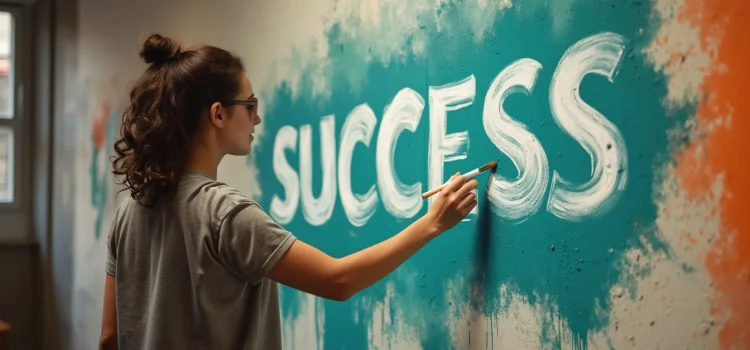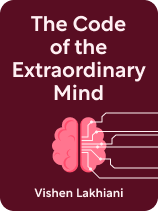

This article is an excerpt from the Shortform book guide to "The Code of the Extraordinary Mind" by Vishen Lakhiani. Shortform has the world's best summaries and analyses of books you should be reading.
Like this article? Sign up for a free trial here.
What does success mean for you? Have you designed a future that excites you and aligns with your personal values?
In his book The Code of the Extraordinary Mind, Vishen Lakhiani suggests rebuilding your vision of success by exploring three key questions. This approach helps cultivate genuine excitement about your future by focusing on what truly matters to you.
Read on to discover Lakhiani’s method of redefining success on your own terms and creating a future you’ll be eager to achieve.
What Success Means for You
What does success mean for you? One part of Lakhiani’s ideal mindset is excitement about the future. To cultivate that sense of anticipation, he recommends rebuilding your personal vision of success from the ground up and designing a future you can truly look forward to. You can do this by thinking about three important questions.
1. “What do I want to experience?” If you had the personal and financial freedom to do anything you wanted, what kinds of experiences would you seek out? For example, some people dream of traveling the world, while others imagine a quiet life as the owner of a local shop or as a stay-at-home parent.
(Shortform note: In The Desire Map, Danielle LaPorte suggests a slightly different approach to setting long-term goals: Ask yourself how you want to feel. She argues that other goal-setting methods such as determining what you want to do—or, in this case, what you want to experience—are only means to the end of feeling how you want to feel. To build on one of the above examples, someone might want to travel the world because they want to feel a sense of excitement. In this case, their ultimate goal isn’t actually the experience of traveling, it’s the feeling of being excited.)
2. “Who do I want to be?” Consider what kind of person you’d need to be in order to live out your answers to the previous question. Also think about what changes you’ll need to make—what kinds of personal development you’ll have to undergo to get from the person you are to a person who can have those experiences. If you want to travel the world, you most likely need money and courage, and few personal commitments keeping you home. On the other hand, to start a small business or raise a family, you need to be someone who can fully devote yourself to those kinds of responsibilities.
(Shortform note: Striving for self-improvement is admirable, but trying to become your ideal self isn’t always practical, especially for people who struggle with perfectionism or anxiety. This is because such people often set unreachable ideals for themselves, such as never making mistakes. Such impossible goals then lead to a cycle of self-criticism and disappointment as they constantly fall short of their impossibly high standards. Therefore, it’s often healthier and more sustainable to focus on making constant small improvements and practicing self-acceptance, rather than striving for a specific “ideal” version of yourself.)
3. “How do I want to help?” Remember that the third happiness skill Lakhiani urges you to develop is contribution. Therefore, your answer to this question will help guide you toward both present contentment and future excitement. Try thinking about it in two parts: how you can help others every day starting now, and how you can help others after you’ve become the person you envisioned in question #2.
(Shortform note: Contribution is an important skill for both present and future happiness because it helps you to feel useful. In The Courage to Be Happy, Ichiro Kishimi and Fumitake Koga (citing the work of psychologist Alfred Adler) say that helping others is a fundamental part of feeling welcomed and valued in your community. Those feelings of belonging and worth, in turn, are necessary for your overall mental and emotional well-being. However, the authors add that value, as a concept, can only exist in relation to other people. Therefore, you must contribute to others’ well-being in order to make you happy—it doesn’t matter what you do or how much you achieve if your only concern is for your own benefit.)
Exercise
Choose one of Lakhiani’s three questions: What do I want to experience? Who do I want to be? How do I want to help? Write the first answer that comes to mind. Note that this is just to get you thinking about it—you are, of course, free to change your answer at any time.

———End of Preview———
Like what you just read? Read the rest of the world's best book summary and analysis of Vishen Lakhiani's "The Code of the Extraordinary Mind" at Shortform.
Here's what you'll find in our full The Code of the Extraordinary Mind summary:
- The psychological and cultural restraints that every person is trapped in
- How to examine your ideas and where they originated from
- How to discard the beliefs that no longer serve you






